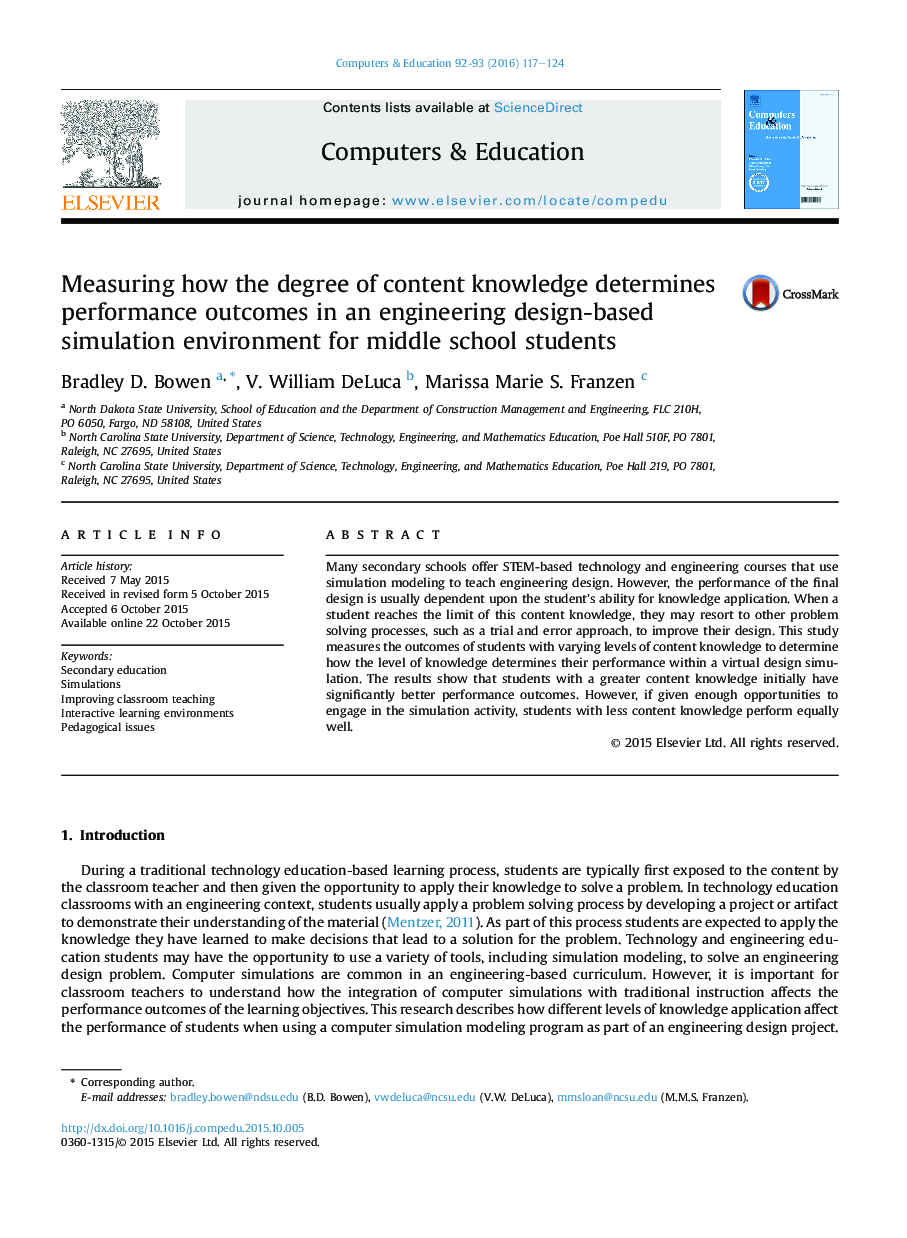| Article ID | Journal | Published Year | Pages | File Type |
|---|---|---|---|---|
| 348220 | Computers & Education | 2016 | 8 Pages |
•Measuring how different levels of content knowledge determine performance outcomes.•Students were exposed to different content in a virtual simulation environment.•Performance application based on efficiency was analyzed.•Content-based knowledge application may initially produces more efficient outcomes.•Less content knowledge with more iterations may produce equal performance outcomes.
Many secondary schools offer STEM-based technology and engineering courses that use simulation modeling to teach engineering design. However, the performance of the final design is usually dependent upon the student's ability for knowledge application. When a student reaches the limit of this content knowledge, they may resort to other problem solving processes, such as a trial and error approach, to improve their design. This study measures the outcomes of students with varying levels of content knowledge to determine how the level of knowledge determines their performance within a virtual design simulation. The results show that students with a greater content knowledge initially have significantly better performance outcomes. However, if given enough opportunities to engage in the simulation activity, students with less content knowledge perform equally well.
